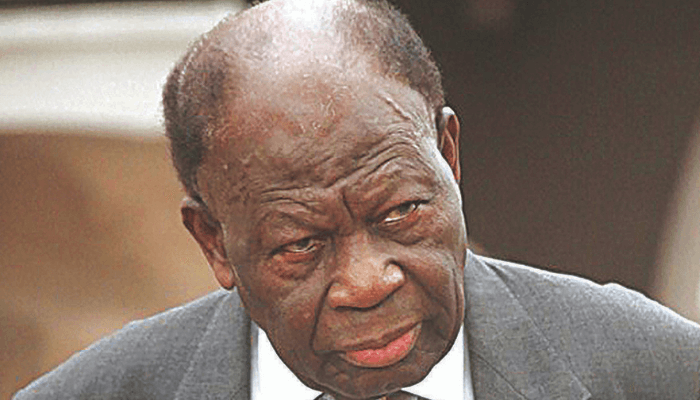The retired partners of KPMG who are still awaiting their pension and gratuity had assembled in Oxford, Oxfordshire, England, to reflect on the state of the accounting profession, which they have been doing for the past twenty years.
Our host, Professor Kenneth Braistow and his charming wife Claire, had made excellent arrangements. However, Professor Braistow was eager to ensure that matters were not confined to accounting but would rather be broadened to accommodate the principles of politics, philosophy, history, and economics.
Matters were not helped by the interjection from Claire that Dr. Nelson Mandela was her choice for our research project—especially what Nigeria has done for South Africa. She proceeded to share the following video by a South African lady.
Read also: South Africa ranks among 7 leading wine producers in the world
“Nigeria spent U.S.$61 billion”
During the apartheid era in South Africa, Nigeria played a very prominent role by fully supporting the anti-apartheid movements, including the African National Congress (ANC), which eventually led to dismantling the apartheid regime. Mawuna Remarque Koutonin narrates the crucial roles Nigeria had played in the struggle against apartheid in South Africa and the liberation of the country after more than 100 years in the apartheid regime`s jaw.
In March 1960, 69 black people were massacred in Sharpeville, South Africa, by the white apartheid police. That same year, Nigeria successfully liberated itself from a 160-year British occupation.
The new Nigeria’s leaders` reaction to the Sharpeville massacre has changed everything in South Africa from then on. Here is a letter the then Nigeria’s Prime Minister Abubakar Tafawa Balewa sent to the African National Congress (ANC) “militants“ on April 4, 1961.
Immediately after sending the letter, Sir Balewa lobbied for the effective expulsion of South Africa from the Commonwealth in 1961.
Beyond political support, Sir Abubakar Tafawa Balewa was the first leader to provide direct financial aid to the ANC in the early 1960s. At the height of the liberation movement in the 1970s, Nigeria alone provided a $5 million annual subsidy to the ANC and the Pan Africanist Congress (PAC) annually. That amount would be in the billions if converted at today`s rate.
Read also: South Africa to file case against Israel at ICJ for war crimes
In 1976, Nigeria set up the Southern Africa Relief Fund (SAFR), destined to bring relief to the victims of the apartheid regime in South Africa, provide educational opportunities for them, and promote their general welfare.
The successive administrations in Nigeria did not abandon the cornerstone of their country`s foreign policy either. The military administration of General Obasanjo contributed $3.7 million to the fund. Moreover, General Obasanjo made a personal donation of $3,000, while each member of his cabinet also made personal contributions of $1,000 each. All Nigeria’s civil servants and public officers made a 2 percent donation from their monthly salary to the SAFR. Students skipped their lunch to make donations, and just in 6 months, in June 1977, the popular contribution to the fund reached $10.5 million.
The donations to the SAFR were widely known in Nigeria as the “Mandela tax.“.
As a result of the fund`s work, a first group of 86 South African students arrived in Nigeria in 1976, following the disruption of the education system in South Africa. It happened after the massacre of 700 students by the white police while the former were protesting against the decision by the apartheid regime to change their educational language to Afrikaans.
Hundreds of South African students have benefitted from the fund`s activity, having come to study in Nigeria for free.
Beyond welcoming students and exiles, Nigeria had also welcomed many renowned South Africans, like Thabo Mbeki (former South African president from 1999 to 2008). He had spent 7 years in Nigeria, from 1977 to 1984, before he left to the ANC headquarters in Lusaka, Zambia.
For South Africans, who could not travel abroad because the apartheid regime had withdrawn their passports, Nigeria’s government issued more than 300 passports.”
Read also: FG to evacuate Nigerians from Lebanon amid Israel-Hezbollah conflict
From the archives:
The donations to the SAFR were widely known in Nigeria as the “Mandela tax.” As a result of the fund’s work, a first group of 86 South African students arrived in Nigeria in 1976, following the disruption of the education system in South Africa. It happened after the massacre of 700 students by the white police while the former were protesting against the decision by the apartheid regime to change their education language to Afrikaans.
Students skipped their lunch to make donations, and just in 6 months, in June 1977, the popular contribution to the fund reached $10.5 million.
The donations to the SAFR were widely known in Nigeria as the “Mandela tax.” As a result of the fund’s work, a first group of 86 South African students arrived in Nigeria in 1976, following the disruption of the education system in South Africa. It happened after the massacre of 700 students by the white police while the former were protesting against the decision by the apartheid regime to change their education language to Afrikaans.
Source link : https://businessday.ng/opinion/article/akintola-williams-memorial-lecture/?utm_sourceu003dauto-read-alsou0026utm_mediumu003dweb
Author :
Publish date : 2024-10-07 04:46:42
Copyright for syndicated content belongs to the linked Source.
